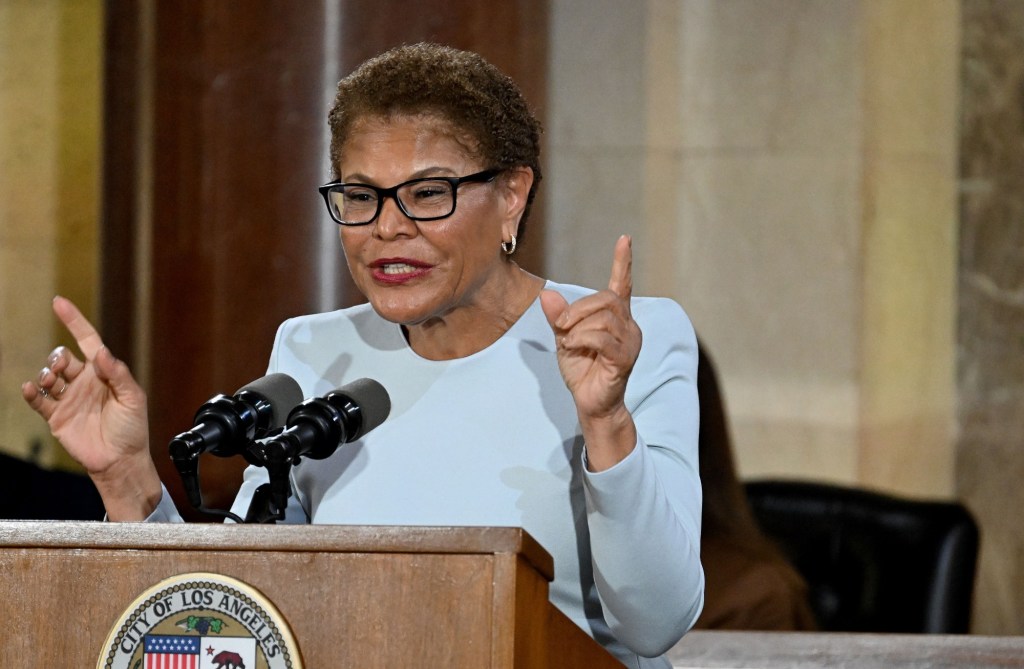
A good friend of mine just bought a home near Springfield, Massachusetts for about $500,000. It’s a beautiful 4-bed 4-bath colonial in a peaceful neighborhood next to a lovely park. In Los Angeles, $500,000 gets you a dilapidated hut in the hood with a permanent police siren soundtrack.
It’s so expensive to rent or buy in Los Angeles, and California more generally, in great part because of a massive housing shortage caused by red-tape, land use restrictions, and community resistance, among other factors. While California is making some progress toward easing these restrictions following the devastating wildfires, much more needs to be done.
By contrast, Los Angeles is focusing on what won’t help the housing crisis: last week, the Los Angeles City Council approved a new ordinance that increases the minimum wage for airport and hotel workers to $30 by 2028. According to Los Angeles City Councilman Hugo Soto-Martinez, “This is what it looks like when working people come together and fight – we win. For too long, the workers who make this city run have been treated as disposable. This ordinance makes it clear if you work in this city, you deserve to live in this city — with dignity, healthcare, and a living wage.”
They say that these minimum wage hikes are necessary in order for people to be able to afford to live in Los Angeles. This ordinance is an example of a problem that we have seen time after time with Los Angeles and state leaders: focusing on all of the wrong things and only making the problems worse. Instead of addressing the real underlying issue, a shortage in the supply of homes, they turn to unnecessary meddling in the labor market.
The solution to home affordability is an increase in supply. If you do not increase the supply, but increase spending power, landlords and sellers will simply raise prices because individuals are still competing for the same number of homes. This cycle is worse in areas like Los Angeles that are experiencing chronic housing shortages.
This exact strategy was recently attempted in the fast food sector with the enactment of Assembly Bill 1228, which raised the minimum wages of many fast food workers to $20 starting in April of last year. According to a recent study by the Pepperdine School of Public Policy and Beacon Economics, after analyzing up-to-date data from the California Employment Development Department, it was found that initial research that indicated that the bill had no negative effects on workers was premature. 23,100 fast food jobs were lost as a result of the wage increases.
The authors also cautioned that they expect, “the negative impacts of the Fast Act to extend beyond the employment numbers, ranging from lost hours and closed establishments to reduced benefits.” There is no reason to believe that the travel and hospitality industries will react any differently. It will lead to lost jobs, lost hours, and reduced benefits for the low-skilled workers it was meant to help. It will certainly not help make homes more affordable.
It was particularly baffling to see the city council intervene given that, following a series of strikes, hotel workers won many concessions on their own with labor agreements just last year that secured increased wages and staffing commitments by the hotels.
According to a study by the California Center for Jobs and the Economy, “Other workers especially the lower skilled and those with lower seniority may instead face lower hours or even job losses as employers adjust to the new labor cost structure.”
They also cited a University of California, San Francisco paper that looked to understand the reasons that people become homeless. The authors found that the most common reason cited for the loss of a place to live is the loss of income. In other words, this ordinance, which is supposed to help the most vulnerable, may actually lead to more homelessness.
Whether or not the LA councilmembers who voted to approve this meant well, their short-sightedness has once again proven to be an impediment to progress and economic wellbeing.
Rafael Perez is a columnist for the Southern California News Group.



